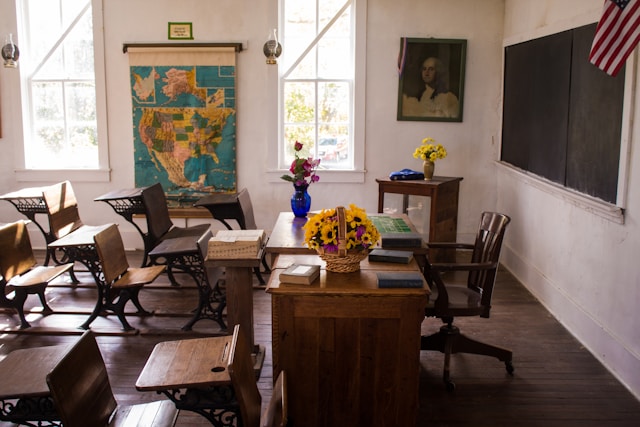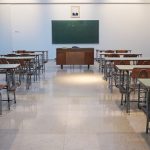In today’s fast-paced world, classrooms are constantly transforming to keep up with technological advancements, diverse learning needs, and evolving teaching methodologies.
Educators are at the heart of this transformation, no longer confined to traditional roles of simply delivering content. Instead, they have become key players in fostering creativity, critical thinking, and adaptability in students.
As modern classrooms continue to change, the expectations placed on educators also shift, demanding new approaches to teaching and a more profound understanding of how to nurture students’ growth in a dynamic environment.

The Importance of Higher Education in Enhancing Teaching Practices
One of the key elements driving the evolution of education is the continuous development of educators through advanced learning. Pursuing higher education offers teachers the knowledge and the tools needed to stay relevant in an ever-evolving academic landscape.
By pursuing specialized degrees, teachers can gain a deeper understanding of effective teaching strategies, curriculum design, and instructional methodologies that align with current educational trends.
Higher education plays a pivotal role in equipping educators with the skills required to create dynamic learning environments that meet diverse student needs. Programs like curriculum and instruction masters programs offer in-depth training in designing comprehensive lesson plans, evaluating student progress, and integrating technology into the classroom.
This specialization provides educators with the expertise necessary to adapt to new teaching standards and student expectations while fostering creativity and collaboration.
Fostering Student Engagement Through Active Learning Strategies
Engagement in the classroom has transformed from passive listening to active participation. Teachers are no longer just conveyors of information but are expected to guide students in discovering and constructing knowledge.
One of the essential roles educators now play is fostering an environment where students are encouraged to think critically, collaborate, and engage in hands-on learning experiences.
Active learning strategies such as group discussions, problem-solving exercises, and project-based learning are becoming central to modern education. These approaches require educators to shift from traditional lecture-based models to interactive and student-centered methods.
Educators must possess the ability to facilitate these activities effectively, tailoring their approaches based on the unique needs of each class. This shift in teaching methodology helps students retain information better and also develops their problem-solving and teamwork skills.
Educators are key players in bridging the gap between theoretical knowledge and practical application. By integrating real-world scenarios into their lessons, teachers create opportunities for students to connect concepts to tangible experiences.
Leveraging Technology to Enhance Learning Outcomes
Technology has dramatically altered the education landscape, and educators are at the forefront of integrating these advancements into the classroom. From smartboards to virtual learning environments, technology offers numerous tools for creating an engaging and personalized learning experience.
However, the successful implementation of these tools relies heavily on educators’ ability to adapt and utilize them effectively.
Incorporating technology into education is more than just using gadgets; it’s about enhancing teaching methods to cater to various learning styles. Educators are tasked with designing digital resources that provide interactive content, enabling students to learn at their own pace.
Online platforms offer access to a wide range of multimedia resources that cater to visual, auditory, and kinesthetic learners. For teachers, mastering these resources and blending them seamlessly into the curriculum is crucial.
Moreover, technology facilitates collaboration beyond the classroom walls. Educators can now connect students with peers from around the world, broadening their perspectives and promoting cultural awareness.
Educators who are proficient in leveraging these tools can create a more inclusive and diverse learning environment, fostering both academic growth and global citizenship.
Supporting Social and Emotional Learning (SEL) in the Classroom
Beyond academics, educators are increasingly involved in supporting students’ social and emotional development. Social and Emotional Learning (SEL) is a framework that helps students develop essential life skills, such as self-awareness, empathy, and responsible decision-making.
As classrooms become more diverse, teachers must be equipped to address the varied emotional needs of their students.
The role of educators in SEL involves creating a supportive and nurturing classroom environment where students feel safe to express themselves and engage with others. This might include integrating SEL activities into daily routines, encouraging peer relationships, and guiding students through conflict resolution.
Teachers also model the behaviors they wish to instill, from effective communication to managing stress and emotions.
In today’s classrooms, educators are facilitators of emotional intelligence as much as they are instructors of academic subjects. This holistic approach to education recognizes that academic success is intertwined with emotional well-being.
By focusing on SEL, educators help build resilient students who are prepared to face the challenges of life beyond the classroom.
Emphasizing Inclusivity and Cultural Awareness
As classrooms become more diverse, inclusivity has become a central focus in education. Educators must recognize and celebrate the cultural backgrounds, experiences, and identities of their students. The responsibility lies in ensuring that teaching practices, materials, and classroom environments reflect diversity and promote equity.
Inclusivity goes beyond accommodating different learning styles; it involves fostering a culture where every student feels valued and represented. Educators achieve this by incorporating diverse perspectives into their lessons, using culturally responsive teaching methods, and engaging students in discussions that broaden their understanding of the world.
For example, including literature from various cultures or celebrating global holidays creates a classroom that is more inclusive and enriching.
Furthermore, educators play a critical role in challenging biases and promoting social justice. By teaching students about equity, tolerance, and respect for others, educators contribute to building a more compassionate and understanding society. Educators are not just teaching academic content; they are shaping the values and attitudes of the next generation.
The evolving role of educators in shaping modern classrooms reflects broader changes in society. As education continues to adapt to new challenges, educators must remain committed to lifelong learning, embracing new strategies and tools to support their students.
Whether it’s pursuing advanced degrees or implementing cutting-edge teaching techniques, educators hold the key to unlocking students’ potential in a dynamic and interconnected world.
Today’s educators are not just instructors; they are mentors, facilitators, and advocates for student success. Their ability to balance the academic, emotional, and social needs of their students defines the future of education. As classrooms continue to evolve, so too must the skills and approaches of those leading them.





